
Cuisine
Syrian cuisine
Syrian cuisine is known for its use of fresh herbs, spices, and olive oil. Meat dishes are popular, but vegetarian options are also common. Syrian cuisine is heavily influenced by the region's history and geography, with dishes reflecting the country's agricultural roots and its position as a crossroads of cultures.
Typical ingredients
Lamb, Beef, Chicken, Eggplant, Tomatoes, Onions, Garlic, Parsley, Mint, Za'atar, Sumac, Tahini, Pomegranate molasses, Bulgur, Rice, Lentils
Presentation and garnishing
Dishes are often presented family-style, with large platters of food being placed in the center of the table. Garnishes may include fresh herbs, pomegranate seeds, or toasted nuts.
The Syrian dish kibbeh, made with ground meat and bulgur wheat, is a popular dish throughout the Middle East.
More cuisines from this region...
History
Syrian cuisine has a long history, dating back to ancient times. The region's cuisine has been influenced by various cultures, including the Greeks, Romans, and Ottomans. Syrian cuisine is also heavily influenced by the country's geography, with dishes reflecting the region's agricultural roots and its position as a crossroads of cultures.
Cultural significance
Food is an important part of Syrian culture, with meals often being shared with family and friends. Hospitality is highly valued, and guests are often served large quantities of food. Syrian cuisine is also an important part of the country's identity, with many dishes being associated with specific regions or occasions.
Health benefits and considerations
Syrian cuisine is generally considered to be healthy, with a focus on fresh ingredients and simple preparation methods. However, some dishes may be high in fat or sodium. Vegetarian options are also common, making it a good choice for those following a plant-based diet.
Syrian cuisine dishes

Mahluta
Vegetable soup with bulgur
Mahluta is a traditional Turkish soup made with lentils and bulgur. It is a hearty and nutritious dish that is perfect for a cold winter day.

Kubbah hāmḍa
Kubbah hāmḍa is a traditional Syrian dish made with ground lamb and bulgur wheat.
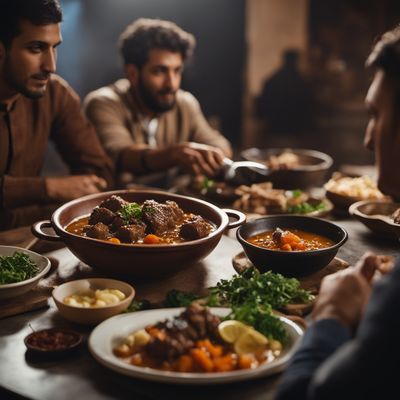
Jalamah
Syrian lamb stew
Jalamah is a traditional Syrian dish that is made with ground beef and eggplant. It is a flavorful and hearty dish that is perfect for a family dinner.

Kubbah labanīyah
Kubbah labanīyah is a traditional Middle Eastern dish that is typically served during special occasions such as weddings and holidays. It is a hearty and flavorful dish that is...

Dal adas
Red Lentil Soup
Dal adas is a traditional Middle Eastern lentil soup that is hearty, flavorful, and easy to make. This dish is a staple of Middle Eastern cuisine and is enjoyed by people all...

Kubbah safarjalīyah
Kubbah safarjalīyah is a traditional Syrian dish made with ground beef and pumpkin.

Karabij halab
Aleppo Cookies
Karabij halab, also known as Aleppo cookies, are a traditional Middle Eastern treat. These cookies are made with a semolina dough and filled with a mixture of pistachios,...
Syrian cuisine recipes Browse all »

Kubbah Hāmḍa with a Twist
Savory Syrian Delight: Kubbah Hāmḍa Reinvented
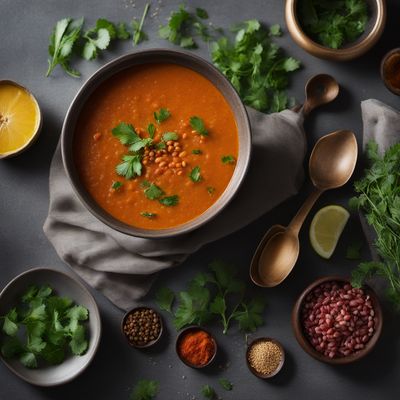
Syrian Red Lentil Soup with Spices
Savory Spiced Lentil Delight

Syrian-style Baked Sea Bass with Spices and Tomato Sauce
Savor the Flavors of the Sea: Syrian Spiced Baked Sea Bass

Syrian-inspired Otoro Nigiri Sushi
Silky Delights: Syrian-inspired Otoro Nigiri Sushi

Syrian-style Vegetable Kofta
Savory Syrian Delight: Vegetable Kofta with a Twist
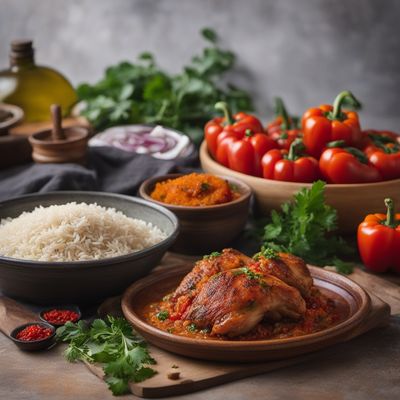
Syrian-inspired Bandera Damascena
A Taste of Damascus: Syrian-inspired Bandera Damascena

Syrian-style Rivas Stew
Savory Syrian Rivas Stew: A Flavorful Delight from the Middle East
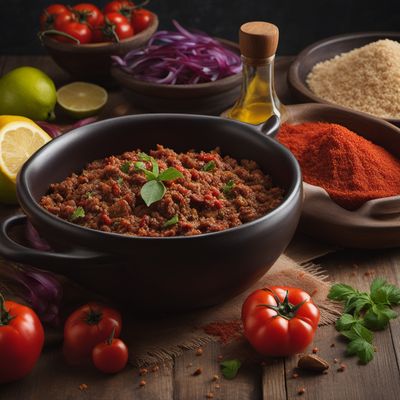
Kubbah Safarjalīyah with a Twist
Savor the Flavors of Syria: Kubbah Safarjalīyah with a Modern Twist

Syrian-inspired Stuffed Pastry Cups
Savory Delights: Syrian-inspired Stuffed Pastry Cups

Syrian-inspired Spicy Watercress Salad
Zesty Watercress Delight: A Taste of Syria
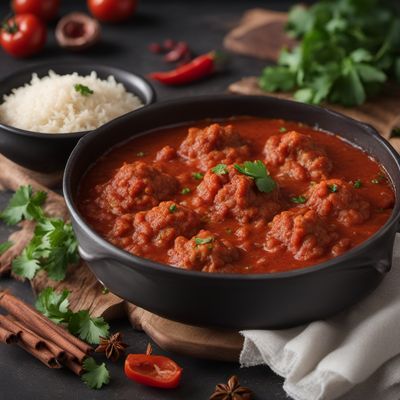
Syrian-style Dumplings with Spiced Tomato Sauce
Savory Syrian Dumplings in Spiced Tomato Sauce

Mahluta Soup
Savor the Flavors of Syria with Mahluta Soup